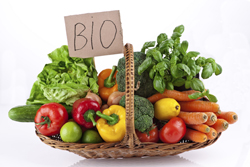Organic food certification: What does it cost and how can it be improved?
The 'Economic analysis of certification systems for organic food and farming' (Certcost) project carried out a comprehensive economic analysis of existing certification systems. Effective organic certification systems must involve the food supply chain and as a result their investigation faces a number of challenges. These include gathering information about costs in different EU countries and to assess the role of private and public certification bodies. With respect to risk two aspects need to be distinguished for organic certification systems: the probability of non-compliance with the regulations, and the magnitude of the possible damage caused by different types of non-compliance. However, greater frequency of inspection can lead to fewer non-compliances and may thus result in benefits for the organic sector. By targeting operators least likely to follow the regulations and/or a greater likelihood of damage due to non-compliance, a risk-based inspection system within an economic context can be achieved. The Certcost project aimed to provide research-based recommendations for improving the efficiency, transparency and cost effectiveness of organic food certification systems in Europe. Results were used to create a baseline for information about the organic certification systems and standard setting procedures within the EU and the associated European countries of Switzerland and Turkey. This included a database, a review of relevant international regulations, and improvement of the current theoretical framework for the economic analysis of organic certification systems. Project partners studied the implementation of different certification systems and the transaction cost along the food supply chain in different EU regions together with Switzerland and Turkey. Researchers also assessed the benefits of certification systems and the consumer response to different organic logos. Economic models were also developed that enabled researchers to assess the factors that determine non-compliance with the regulations governing organic produce and to conduct an overall assessment of organic certification systems. Project recommendations on how to increase the effectiveness and the efficiency of organic certification were developed for the European Commission, national bodies and private actors. These recommendations can serve as a basis for improving the current certification system in the European Union, Turkey and Switzerland.







